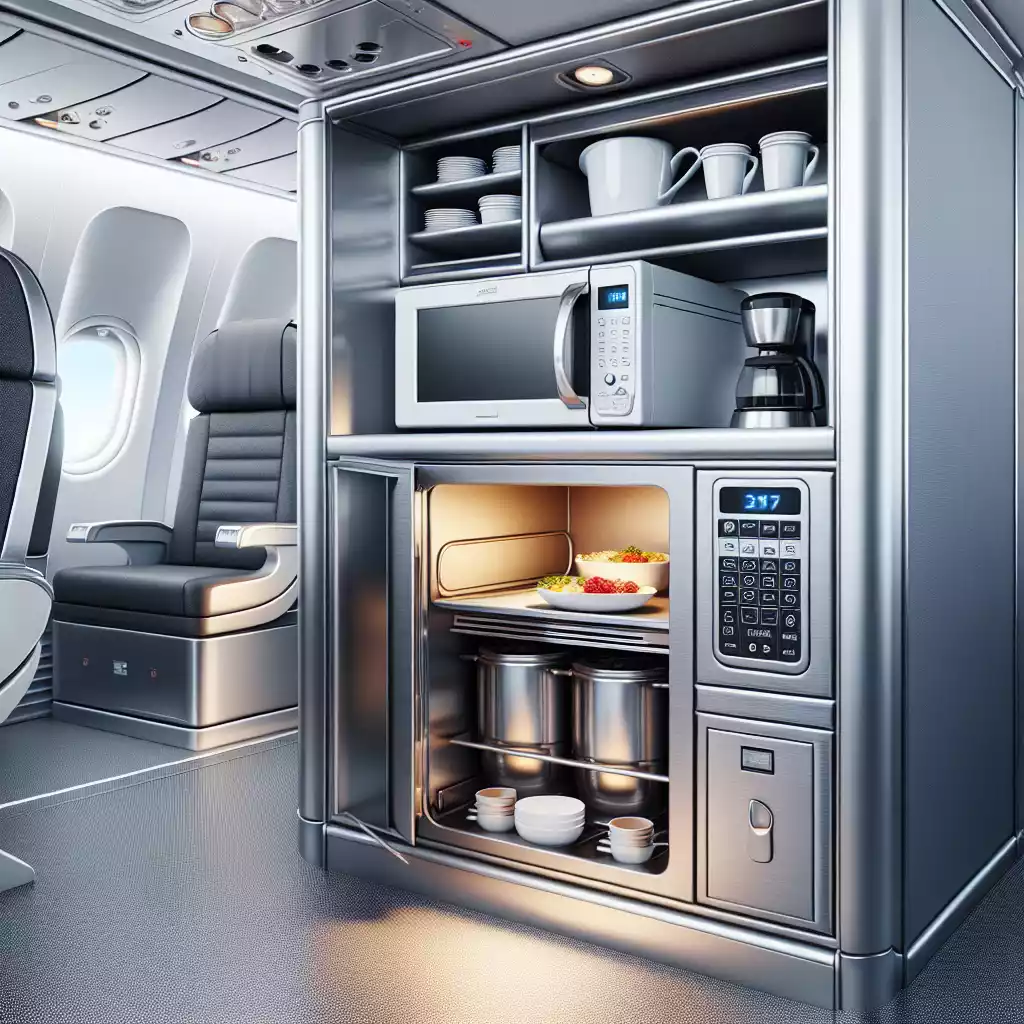Introduction to In-Flight Catering
Ever wondered how airlines manage to serve hot meals at 35,000 feet? The journey of in-flight catering has evolved significantly since the early days of air travel. Back then, passengers could only expect a simple sandwich and a drink. Today, airlines serve everything from gourmet meals to dietary-specific dishes, all while ensuring food safety and quality. But how exactly do they heat these meals? Do airplanes use microwaves, or is there another method? This article dives into the intricacies of in-flight meal preparation, shedding light on the equipment and methods used.
History of In-Flight Meals
Early Days of Air Travel
In the 1920s, air travel was a luxury only a few could afford. Airlines provided basic food options, often pre-packed and served cold. The lack of proper kitchen facilities limited what could be offered.
Evolution of In-Flight Catering
By the 1950s, the aviation industry saw significant advancements. Airlines began to invest in better kitchen facilities, known as galleys, allowing them to offer a wider variety of meals. This period marked the beginning of hot meal services on flights.
Modern In-Flight Kitchens

Components of a Galley
A galley is the airplane’s kitchen, equipped with various appliances and storage units. These include ovens, refrigerators, and trolleys for meal distribution. The design and layout of galleys vary depending on the aircraft type and airline preferences.
Cooking Equipment Used
The primary equipment used in galleys includes conventional ovens, steam ovens, and microwaves. Each has its own set of advantages and limitations, influencing how meals are prepared and served.
The Role of Microwaves in Airplanes
Types of Microwaves Used
Airplanes typically use compact, high-efficiency microwaves designed to operate at high altitudes. These microwaves are engineered to withstand the unique conditions of air travel, ensuring consistent performance.
Advantages and Limitations
Microwaves offer quick heating, making them ideal for short-haul flights where time is limited. However, they may not be suitable for all types of food, particularly those requiring even heating or a crisp texture.
Alternative Heating Methods
Conventional Ovens
Conventional ovens are widely used in airplane galleys. They offer even heating, making them suitable for a variety of dishes. However, they take longer to heat food compared to microwaves.
Steam Ovens
Steam ovens are another popular choice. They use steam to heat food, retaining moisture and flavor. This method is particularly effective for reheating pre-cooked meals.
Safety Regulations and Standards
International Aviation Standards
The International Civil Aviation Organization (ICAO) sets stringent safety standards for in-flight catering. These include guidelines on equipment use, food storage, and hygiene practices.
Airline-Specific Policies
Each airline has its own set of policies governing in-flight meal preparation. These policies ensure compliance with international standards while addressing specific operational needs.
Case Studies of Airlines Using Microwaves
American Airlines
American Airlines utilizes a combination of microwaves and conventional ovens in their galleys. This allows them to offer a diverse menu, catering to different passenger preferences.
Emirates
Emirates, known for its luxurious in-flight dining, employs advanced microwaves and steam ovens. This ensures that meals are heated to perfection, maintaining high standards of quality and taste.
Common Myths and Misconceptions
Health Concerns
Some passengers worry about the safety of microwaves. However, modern microwaves used in airplanes are rigorously tested to ensure they meet safety standards, posing no health risks.
Efficiency and Functionality
Another common misconception is that microwaves are less efficient than other heating methods. In reality, microwaves offer quick and effective heating, making them a valuable asset in airplane galleys.
Future of In-Flight Meal Preparation
Technological Advancements
The future of in-flight catering looks promising, with advancements in technology paving the way for more efficient and versatile kitchen equipment. This includes next-generation microwaves and multi-functional ovens.
Passenger Preferences and Trends
As passenger preferences evolve, airlines continue to adapt their in-flight meal offerings. This includes catering to dietary restrictions and offering a wider variety of meal options.
Relevant Data Table
In-Flight Heating Methods Comparison
| Heating Method | Advantages | Limitations |
|---|---|---|
| Microwaves | Quick heating, compact size | Uneven heating, not suitable for all foods |
| Conventional Ovens | Even heating, versatile | Longer heating time, larger size |
| Steam Ovens | Retains moisture, even heating | Complex operation, larger size |
FAQs
FAQ 1: Are microwaves safe to use on airplanes?
Yes, microwaves used in airplanes are specifically designed to meet stringent safety standards, ensuring they are safe for use at high altitudes.
FAQ 2: Do all airlines use microwaves?
Not all airlines use microwaves. The choice of heating equipment varies depending on the airline and the type of service they offer.
FAQ 3: How do microwaves affect the taste of food?
Microwaves can heat food quickly but may not always provide even heating. This can affect the texture and taste of certain dishes, making them less suitable for gourmet meals.
FAQ 4: What are the alternatives to microwaves in airplanes?
Alternatives to microwaves include conventional ovens and steam ovens. These methods offer more even heating and are suitable for a wider variety of dishes.
FAQ 5: Are there any airlines known for not using microwaves?
Some airlines, particularly those offering premium services, may opt for conventional or steam ovens instead of microwaves to ensure higher food quality.
Conclusion
In-flight catering has come a long way since the early days of air travel. While microwaves play a crucial role in heating meals quickly and efficiently, they are just one of several methods used in airplane galleys. Airlines continue to innovate and adapt to passenger preferences, ensuring that in-flight dining remains a pleasant and satisfying experience.

